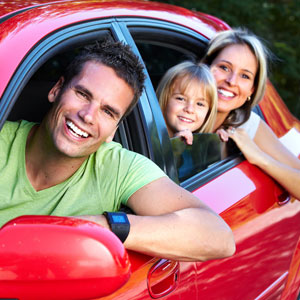
If you are feeling slightly dehydrated, try to drink lots of water and other liquids to alleviate the thirst, if however the dehydration is more advanced and especially if vomiting has occurred, you should seek immediate medical treatment.
“If medical treatment is not accessible make up a solution consisting of half a teaspoon of salt, two teaspoons of sugar and a pinch of bicarbonate of soda mixed together with 150ml of water and drink immediately,” says Willie Jordaan, Head of Pharmacy and Professional Services at Clicks.
Tips for travelling safe:
- Drink enough fluids and always listen to your body;
- Avoid eating snacks with high levels of salt or sugar;
- Do not skip breakfast and snack on small amounts of food to prevent nausea; and
- If you are feeling drowsy you need to stop and take a break, eating will not keep you awake.
Instead of stopping for junk food along the way and sitting indoors why not pack a cooler box full of good healthy food and have a picnic in the fresh air or simply snack along the way.
Avoid giving toddlers sugar as this will make them cranky and difficult. Ensure they drink lots of water instead of fizzy drinks, or juice diluted with water. Let them snack on veggies like baby carrots and sugar snaps or dried fruit. Granola bars, digestive biscuits and bread sticks are also great for snacking on. Use whole wheat bread for sandwiches with lean meats or chicken and eat fruit as dessert.
“Never forget your first aid kit when going on holiday which can be left in the car or used at home after your holiday. What you keep in it is also very important and may vary depending on your holiday destination,” says Jordaan. “For instance if you are travelling to an area with a high snake bite risk it may be a good idea to take a snake kit, do your research,” adds Jordaan. You can make up your own kit or buy ready made kits which you can add to depending on your requirements.
Your basic first aid kit should consist of the following items:
- stretch bandages (5cm, 7.5cm, 10cm);
- triangular bandages;
- gauze;
- adhesive tape or safety pins (to hold bandages together);
- burn dressing;
- 1 bottle of Dettol (50ml)
- scissors to cut gauze;
- plasters in varying sizes;
- cotton pads;
- tweezers;
- thermometer;
- measuring spoons;
- disposable rubber gloves;
- 1 mouthpiece for administering CPR; and
- flashlight.
Medications should include:
- antihistamine tablets or cream;
- calamine lotion;
- rehidrat;
- paracetamol;
- antiseptic ointment;
- valoid for travel sickness;
- zovirax for fever blisters; and
- sufficient amounts of any medications that anyone may be taking.
So before you go on holiday make sure you have sufficient amounts of water, good healthy food kept cool and fresh, a well-stocked first aid kit and know your potential health risks and be prepared for them.
(Photo of family travelling by car from Shutterstock)




 Publications
Publications
 Partners
Partners













